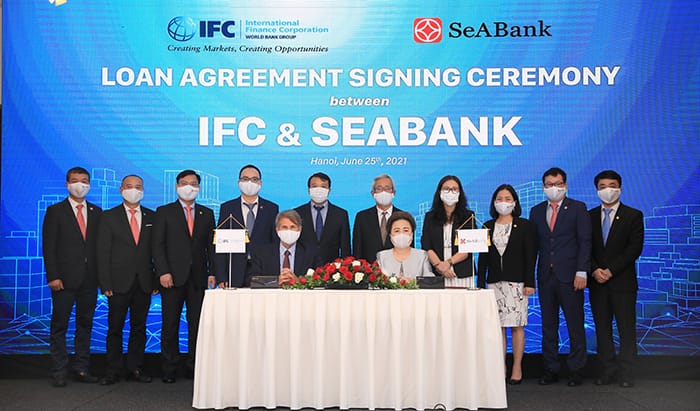Hanoi, Vietnam — International Finance Corporation (IFC) has collaborated with Vietnamese private retail bank, Ho Chi Minh City Development Joint Stock Commercial Bank (HDBank), to help Vietnamese small and medium businesses access innovative funding enabling them to better take part in global supply chains, expand into new markets, and help drive Vietnam’s economy.
The move follows the signing of a Memorandum of Understanding between IFC and HDBank with the aim of boosting supply chain financing (SCF) for the country’s small and medium enterprises (SMEs). The collaboration is expected to help HDBank build an SCF portfolio of $1b by 2025.
The lack of working capital has been a key constraint for local businesses in Vietnam, especially SMEs which account for about 98 per cent of all businesses. Innovative funding such as SCF is relatively new in Vietnam and still to reach most SMEs. Additionally, the main sources of SME finance continue to be loans backed by mortgages. As a result, the share of receivables and inventory registered as movable collateral in Vietnam is just about 30 percent, significantly lower than those in the more developed markets.
Thanh Pham, chief executive officer of HDBank, said, “SCF that links buyers, suppliers, and financial institutions will efficiently support the trade cycles. IFC’s timely support will enable local businesses to leverage emerging trade opportunities and improve their linkages to formal supply chains, contributing to Vietnam’s economic growth.”
Pham added, “It will further help HDBank realize its vision to be among the top banks in the country with a core focus on SME and retail banking, while emphasizing value chain financing and growing its anchor client base. Also, agriculture chain is an important target industry for us, especially high-tech and green agriculture.”
IFC will help HDBank grow its SCF portfolio; specifically assisting HDBank to design an SCF strategy for the agri sector, broaden its SCF products—especially supplier and distributor financing—and bring on board anchor firms along with their suppliers and distributors, among others.
Meanwhile, Stephanie von Friedeburg, senior VP of Operations for IFC, commented, “SMEs are the backbone of Vietnam’s economy and are essential to the country’s ambition to become a regional manufacturing hub. Our support to local financial institutions like HDBank will help SMEs in Vietnam link into global supply chains and access opportunities to grow and create jobs.”
IFC’s technical support to HDBank is part of a multi-year program to be implemented in partnership with the Swiss Secretariat for Economic Affairs to provide in-depth advisory services to regulators, local banks and non-bank institutions to develop SCF business in Vietnam, contributing to greater market integration and supporting the SME sector’s growth in the country.
Earlier in April, IFC also provided HDBank with a $40m trade finance line under its Global Trade Finance Program, which will improve the lender’s capacity to cover payment risk in granting trade financing to local companies, mostly SMEs. HDBank is the newest Vietnamese bank to join the program since its launch in Vietnam in 2007.


